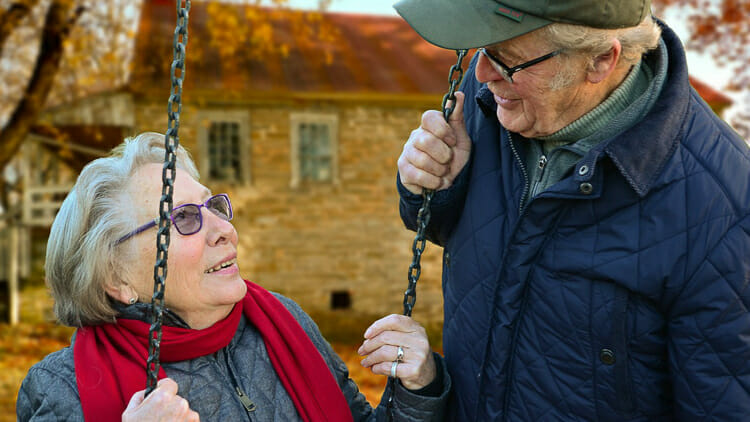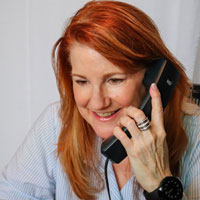Jan 27, 2019
Caring for Caregivers – A Personal Story
 In our lives, we either are, have been or will be a caregiver. And it is a loving, challenging, fulfilling, exhausting, priceless, financially costly, emotionally and physically draining role – sometimes, all in one day.
In our lives, we either are, have been or will be a caregiver. And it is a loving, challenging, fulfilling, exhausting, priceless, financially costly, emotionally and physically draining role – sometimes, all in one day.
I watched my mother as a caregiver. Virtually overnight – as it so often happens – she became caregiver to my father who suffered a debilitating stroke. He was already in treatment for cancer, but had been admitted for a simple surgery unrelated to his cancer diagnosis and suffered a stroke while still in the hospital. It left him unable to walk or speak (he could hum a lovely tune, however, with my mother). He could no longer pursue cancer treatment and suddenly, my Mom was primary caregiver to him for the last nine months of his life. Caregiving is not necessarily a gradual process, but often a sudden event that new caregivers are untrained and unprepared for.
Like many parents, my mother refused the help we children tried to give her. Perhaps if my Mom had access to some of the elderly care products available today for caregivers, such as the Theora Care remote monitoring solutions, she would have been more comfortable leaving our Dad with one of us or a professional caregiver. She could have taken a break to get out of the house for awhile, but still have the peace of mind of knowing Dad was where he was supposed to be, how he was doing and be able to communicate with him, even if it was just to reassure him by hearing her familiar voice.
Much has been reported over the last few years about the stress of caregiving causing physical and emotional health issues for caregivers. I personally believe the strain of caregiving caused my mother’s own premature death at age 65, shortly after my father’s passing. Busy caregivers can get so caught up in the day to day, minute to minute activities, they can neglect or lose sight of their own personal needs. In our case, Mom didn’t know how to ask for help and we didn’t know what she needed, what to do. What has stayed with me is if I knew then what I have learned from all of the fearless caregivers I have met over the last few years, I would have done things differently and figured out how to help her more.
This blog is intended to provide other caregivers (especially first timers) with a quick, helpful overview of how to help a caregiver. Here are some strategies and tools can we use to better support our caregiver family, friends, and clients, and what might be helpful to caregivers to promote better self care.
For Caregivers
Please remember to ask for help. Family and friends want to help – sometimes, we really just don’t know what to do. Asking someone to do a specific task that they can and would like to do gives them a great feeling of accomplishment and love. Please don’t hesitate to ask!
Connect with online and in-person caregiver support groups. Sometimes caregiving can be isolating, and support from someone in a similar circumstance is invaluable to all of us. Sharing ideas or thoughts with someone who is going through the same thing can be very reassuring and stress relieving, not to mention a way to make new friends. There are many free support groups in most communities, and some great online blogs and support group information can be found here and here.
Don’t forget your annual physical. It can be more difficult to help others when we are not at our best. Please take care of your physical wellbeing. Some caregivers schedule regular massage or chiropractic treatments to keep their bodies strong. Keeping up with your exercise routine is also key. Sometimes just a small tweak can make a tremendous difference in energy levels, happiness and quality of life.
Respite groups for care recipients. Most communities offer free or low-cost respite care groups for care recipients. A good place to start is with a local Alzheimer’s Chapter https://www.alz.org/ or even your local Chamber of Commerce can help.
Plan a vacation! For all of us, it is such a relief to have something like a weekend getaway or extended vacation to look forward to. Even traveling via air can be done with just a little more effort – even if you are travelling with a power wheelchair. Most airline employees are extremely helpful with disabled passengers. Plus, there are condition-specific cruises and holidays available that offer respite care as part of the package.
More caregiver support ideas from the National Institute on Aging. https://bit.ly/2h2GbtQ
For Caregiver Friends and Family
Shadow a caregiver for a day. Some caregivers may initially refuse outside help, either from family or professionals. Understanding the daily routine may help a caregiver become more comfortable in being away, so they can relax and take some time for themselves.
Gift cards/certificates. Caregiving can be expensive, as there are a lot of out of pocket costs. A gift card to a grocery store, pharmacy, gasoline or other frequently visited retailer would be appreciated. Certificates for professional home care services are available as well.
Monthly thoughtfulness. If you are so inclined, many retailers offer 3, 6 and 12 month gift packages, such as fruit, baskets, books, etc. Another thoughtful and recurring way to show you care for your busy caregiver! One friend we know gave another an orchid for every chemotherapy treatment completed, and it was very appreciated!
Give the gift of time off. Provide a homemade gift certificate for a “day off” accompanied by a gift card to a service your caregiver friend/family would love: movie passes, salon, restaurant, etc.
Easy-to-use technology that supports caregivers. Caregivers are very busy, and can’t always be present with their loved ones 100% of the time due to work, appointments, errands, even school for our younger generation of caregivers. Now, affordable gps tracking bracelet and communication solutions such as the Theora Connect wearable for care recipients, coupled with the Theora Link Smartphone App for caregivers, helps reduce caregiver stress by knowing a care recipient’s location and how, when and where they may need assistance. Direct communication is provided via the caregiver’s smartphone app direct to the pre-activated cellular on the wearable. For more information click here
Next Avenue article link with more helpful ideas https://bit.ly/2C92aHN

